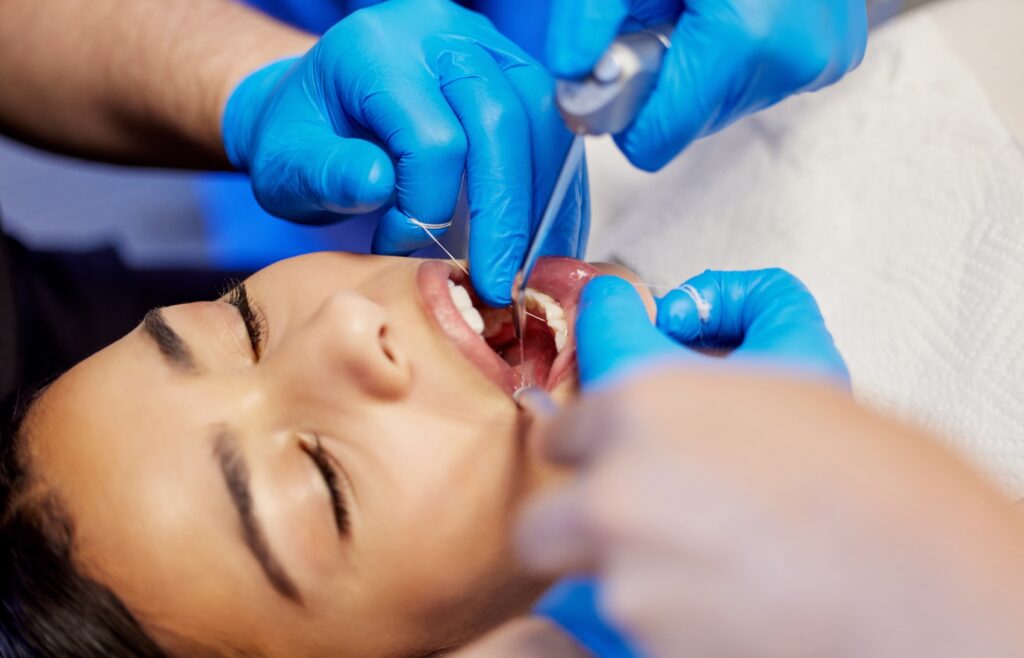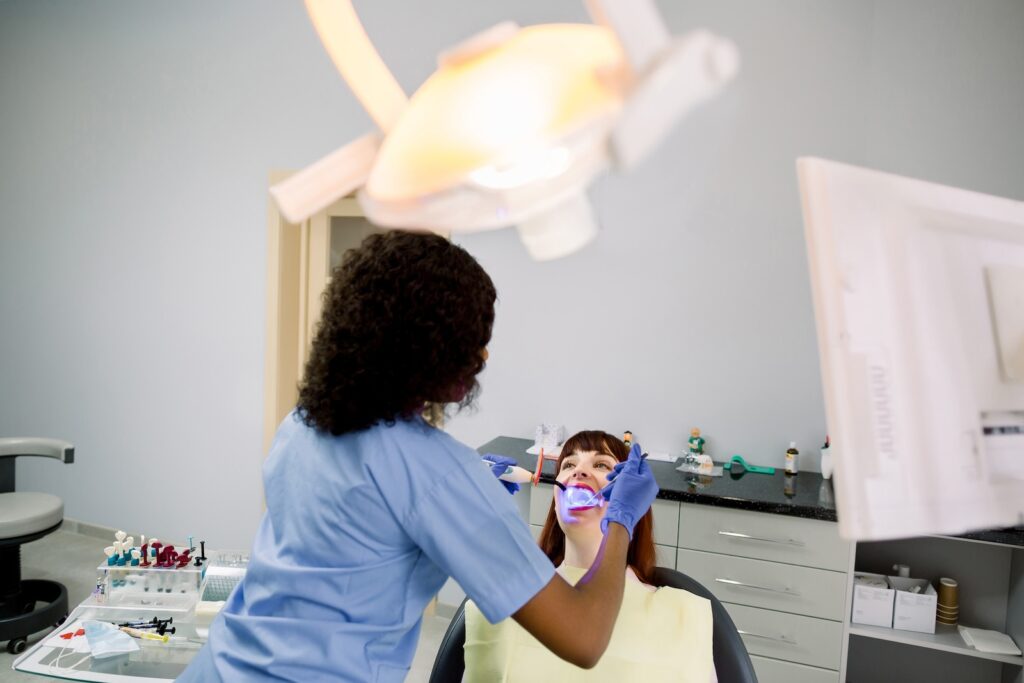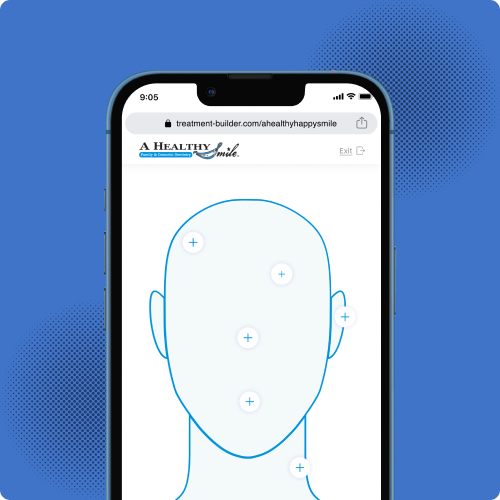
Very early on we are taught the importance of good oral hygiene. We brush our teeth after waking up and before going to bed, but what about the other part of healthy teeth and gums? We’re talking about flossing.
It’s a staggering statistic, but only 30 percent of the population flosses on a regular basis. But what’s the big deal anyway? Why should you take that extra minute in the morning to floss?
Why Should You Floss?
Not only does flossing dislodge food stuck between teeth, but it is an important step in controlling the number of bacteria in our mouths.
When you swallow, bad bacteria from the mouth can be ingested and ultimately end up in your bloodstream. This can cause negative health issues ranging from pneumonia to heart disease, to cancer.
A healthy mouth is an easy step that can be added to your day to maintain good health, and have a beautiful smile.
How Often Should You Floss?
According to the American Dental Association (ADA), you should floss at least once a day. Flossing can occur either before or after brushing, and it is recommended to follow up with a mouth rinse, hydrogen peroxide, or swishing water around your mouth. This will help keep your mouth healthy, fresh, and plaque-free.
If you tend to consume quite a bit of sticky or stringy foods, it is a good idea to floss more than once a day – perhaps after each meal. This will prevent the long-term buildup of plaque, tartar, and bacteria.
Proper Flossing Techniques
It is important to use proper flossing techniques so that you don’t damage your gums. Depending on the flossing tool you chose, read directions thoroughly to ensure you are getting the best possible clean.
It is important to use the flossing tool that is most convenient and comfortable for you, to ensure that you keep up with it on a daily basis.
Flossing Methods
When you are in a pinch and need to get something out from between your teeth, you may grab the nearest object. In fact, a study revealed that American adults have used anything from fingernails to safety pins, and even strands of hair to remove foreign matter from teeth.
This is not only unsanitary but could potentially cause you quite a bit of pain! It’s safest to stick to ADA-approved tools to clean your pearly whites.
Proxy Brush
A proxy brush, also known as an interdental brush, are small, round brushes that go in between teeth and scrub away plaque, bacteria, and food.
Proxy brushes are thought to be easier to use than traditional string floss, however, they should only be used a handful of times before they should be replaced.
These brushes work best for those with joint or arthritis issues in the hands, braces or dentures, and large gaps in teeth.
Water Flossing
A water flosser is a small, handheld tool that sprays a small stream of water between teeth.
Like a proxy brush, water flossing is a great option for anyone who has trouble holding a traditional piece of string floss, or for anyone with dental work or dentures.
Additionally, water flossing can be a better option if you have sensitive gums and tend to bleed. It is an ADA-approved method for cleaning teeth and does a great job of removing plaque and bacteria pain-free.
Dental Floss Picks
Dental floss picks a small plastic tool that holds a piece of floss at the end for flossing on the go. Some styles have toothpicks or tongue scrapers on the opposite ends, while some will have grips to make them easier to use.
These are great for those who prefer the traditional string-floss method of cleaning their teeth but may not have the hand mobility to do so. They are also perfect to carry along with you while out-and-about since most brands are disposable and sold in large quantities.
String Floss
The traditional method of using a piece of string to clean between the teeth is very efficient, affordable, and a trusted method of cleaning the mouth.
Although this is probably the most popular method for flossing teeth, there are certain drawbacks. Difficulty navigating the mouth if you have large hands or joint discomfort, as well as sensitive gums can be huge deterrents to using the classic string.
It can also be almost impossible to use if you have dental work, like braces or a permanent retainer, and is not advised to use with dentures, as it can ruin the seal of the teeth.
Maintaining Proper Dental Care
Flossing is an important step in a healthy smile, but it’s not the only one. Daily brushing, mouthwash, a healthy diet, and regular trips to the dentist are also important.
It is recommended that adults and children see a dentist every six months for a cleaning and check-up. Depending on the dental office, cleanings can be complete in half an hour so you can get back to your day!
A Healthy Smile PA
A Healthy Smile PA provides quality family and cosmetic dentistry for the Rock Hill area. They strive to create a warm, family atmosphere and specialize in multiple dental services.
In addition to a fresh-feeling smile, you can count on great dental advice from brushing, to flossing, to maintain long-term oral health.
Contact A Healthy Smile today to book your next dental appointment with Dr. Loray and Dr. Harvey. Your teeth will thank you!



